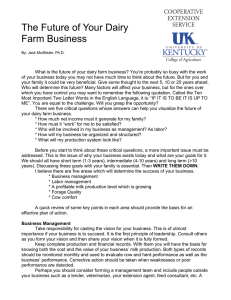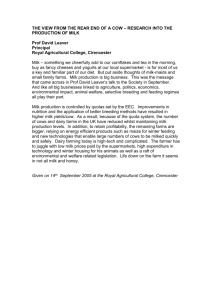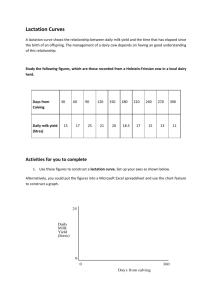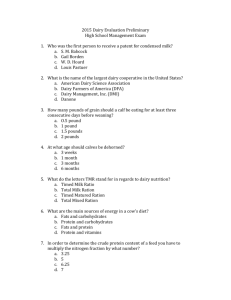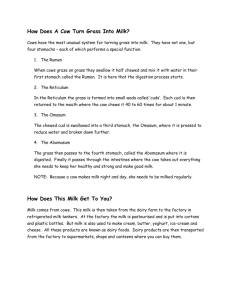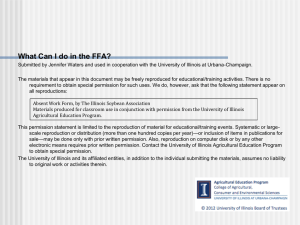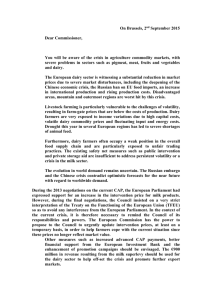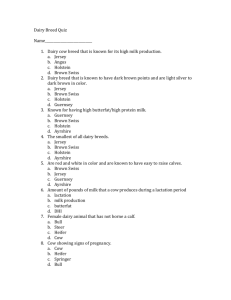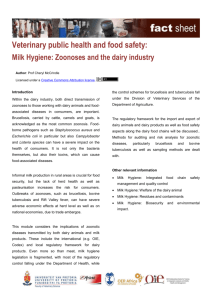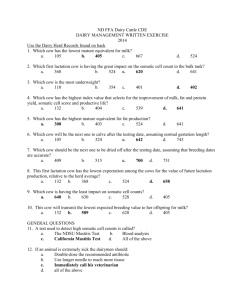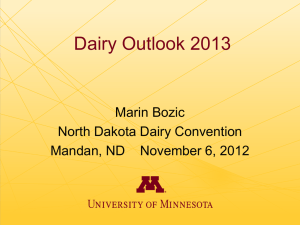Selecting and Judging Dairy Cattle
advertisement
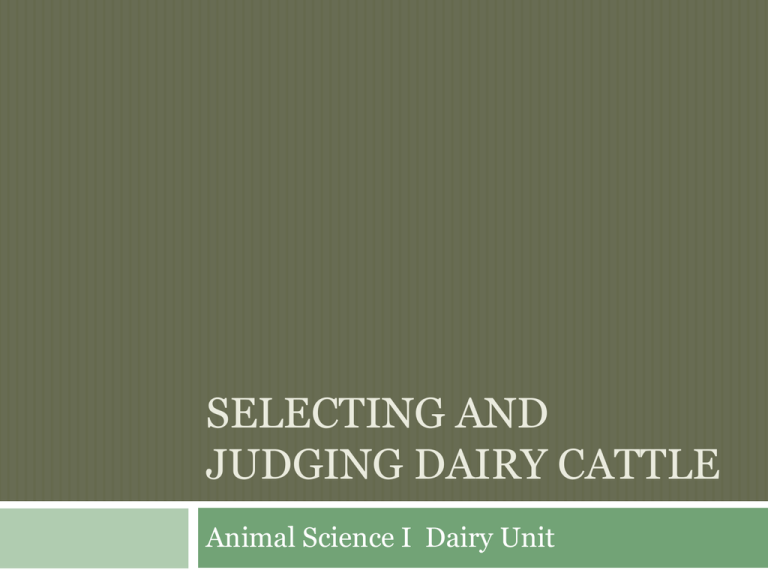
SELECTING AND JUDGING DAIRY CATTLE Animal Science I Dairy Unit Selecting Desirable Breeding and Production Animals Based upon Physical appearance Health Milk production records Pedigree Physical Appearance Referred to as type Confirmation of the animal Closely related to production Cows with good type usually produce more milk for longer periods of time Health Records Includes history of vaccinations and general herd health Apparent health of the animal is also important Milk Production Records May or may not be available Records give some indication of the possible production of the offspring of the cow Production Records Show the pounds of milk produced and the percent milk fat To properly evaluate milk production records the following information is needed Number of times milked per day Age Feed Care Length of time the cow carried a calf during each lactation Can only give an estimate of the ability of the cow to transfer high production ability to her daughters Best indicator of a cow’s transmitting ability is in the records of her offspring. Pedigree Record of the animals ancestors Most valuable pedigrees for selection give for each ancestor Name Registration number Type rating Production record Show-ring winnings Study carefully they can sometimes be misleading Judging Dairy Animals See p. 721-725 Terms p.726-727 Steps in Judging http://www.uvm.edu/~jagilmor/judging/jud ging.html http://www.uvm.edu/~jagilmor/judging/vie wcl2.html Summary Physical appearance, health, milk production records and pedigrees are important factors to consider when selecting dairy animals for breeding and production Animals are judged by comparing the animal being judged with an ideal dairy type as described on the The Dairy Cow Unified Score Card Desirable traits are related to the cows ability to produce milk for a long period of time The mammary system is the most important part of the cow Follow a routine when judging dairy cattle First impression are usually the most accurate Use dairy judging terms when giving oral reasons
